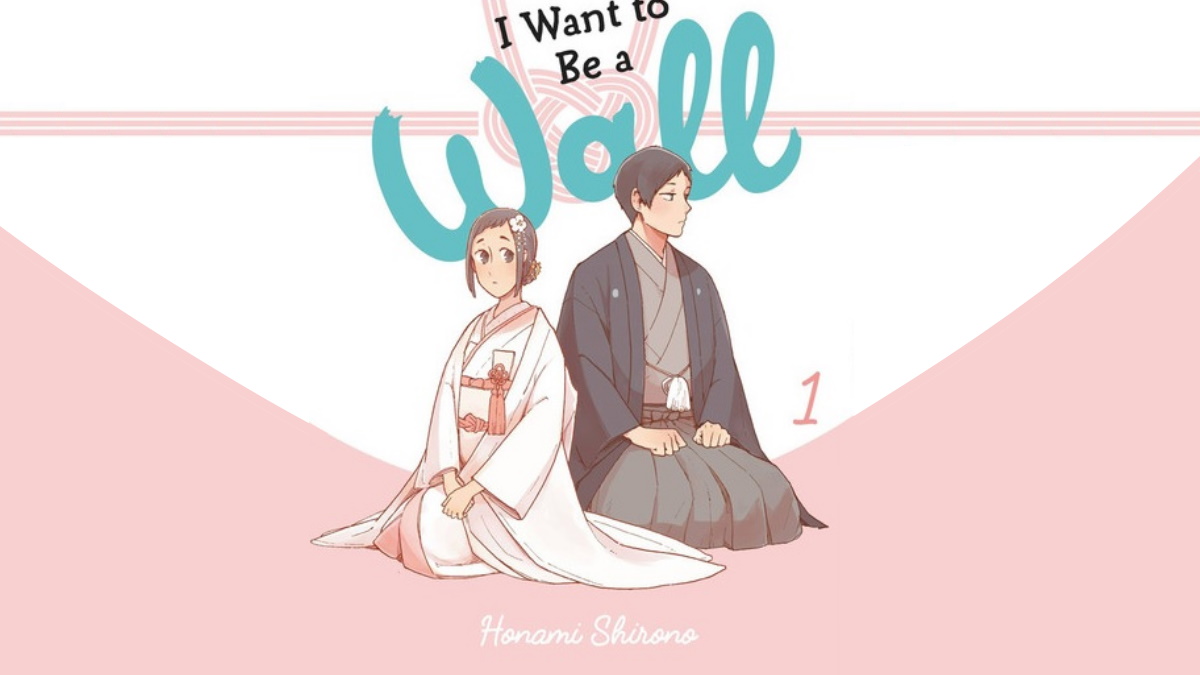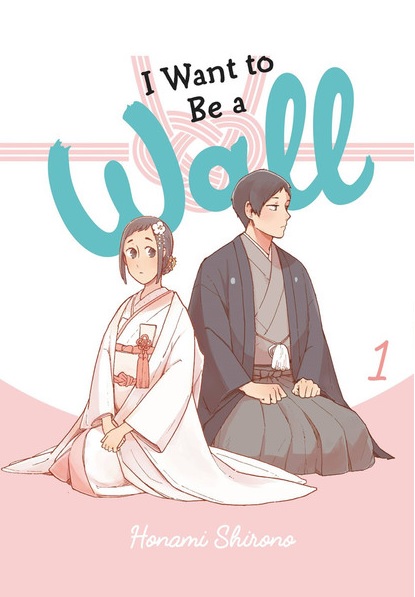‘I Want To Be a Wall’s’ Ace Protagonist Only Likes Romance in Fiction, and I Love Her
"I can enjoy it in fiction, but when it comes to me, it's a no-go."

As someone who’s always on the lookout for good LGBTQ+ manga to add to my, admittedly, hefty pile of books, I Want To Be a Wall was a story that intrigued me immediately. Asexuality (the “A” in “LGBTQIA”—no, it’s not ally) is an identity that isn’t seen too often in anime/manga, or media in general. There are, of course, plenty of fan theories about which characters read as ace, but as far as canonical content, we still have a ways to go.
I Want To Be a Wall isn’t a story where you have to tilt your head and wonder if someone is ace; it’s stated plainly in the synopsis and in the story—not just in the text, but from the character herself. As I read the first volume, I was surprised at how much of her story I related to, from dealing with folks badgering you about when you’re gonna start dating to feeling an intimate sense of satisfaction when watching or reading about fictional relationships you’ve gotten invested in.
Synopsis

Any love story aficionado will say that the key to a successful couple is intense desire for one anothe — but what if the characters in question are an asexual woman with a passion for Boys Love stories and a gay man whose heart forever belongs to his oblivious childhood friend? Although romance will never be in the cards for newlyweds Yuriko and Gakurouta, the bond blossoming between them promises to be a wonderful relationship — the likes of which neither has ever experienced before…
Realizing that you’re not broken
While the story is about Yuriko and Gakurouta, a good portion of the first volume focuses on Yuriko. She’s just married Gakutouta, a gay man who’s in love with his childhood friend, while she herself is an asexual boys love fangirl. While the primary focus on her fictional love is boys love, she does say that any couple is okay with her (including straight couples); she just isn’t interested in that kind of relationship in real life.
I related to Yuriko immediately, especially when the story gave a glimpse of her life in high school. Constant questions about when she was going to start dating and feelings of being broken because she didn’t feel the burning need to date anyone reminded me of how I felt in high school. I was surrounded by people going out on dates and having sex, and I just wasn’t interested in any of it. I was stuck in a weird sort of circle where Black girls were accused of being “fast” if they did hook up with a boy while also being asked when I would get a boyfriend (never a girlfriend). It reached a point where people were trying to figure out why I wasn’t dating, coming to conclusions like “you’d be cuter if you lost weight” or “maybe she’s gay.” It was never a satisfying answer that I was just fine watching anime, writing fanfic, and spending time with friends.
Much like Yuriko getting married, the questions shifted when I did get a boyfriend in high school, which, looking back, I kinda feel like I rushed into it in an attempt to get the overly concerned comments to stop. “When are you going to sleep with him?” became a topic of discussion, and I, again, thought something was wrong with me because I didn’t want to. When I read of high school Yuriko talking about being frustrated with how much people value love and romance, I had to set the manga down because that was exactly how I felt. Even when I did get together with my girlfriend/future wife and put the “bisexual” pieces together for myself, there were always questions asking when we’d have children, how we’d even go about doing it since we were two women (eye roll), and, ugh, “who’s the man in the relationship?”
Just because you’re ace doesn’t mean you don’t feel anything
Yukiko discovering the word “asexual” puts things into perspective for her. Even if the people around her don’t get it, it comforts her, and that’s what matters. She now knows that there’s an explanation for how she feels, and as we see her relationship develop with Gakutouta, she suddenly has someone who is supportive of her identity. Gakutouta is in a similar situation himself, as we get to see him growing up and wondering “what’s wrong with me” when he realizes he’s in love with his childhood friend, Sousuke. He’s been watching Sousuke from the sidelines, keeping his feelings to himself as he watches him enter into new relationships. He hasn’t had anyone to confide in until Yukiko, so the two have settled into a relationship where they support each other.
One thing I really appreciate about this manga is the fact that it illustrates how Yukiko and Gakutouta are clearly in a loving relationship. One of the things I’ve heard people say about the ace community is that they don’t express love at all, but this manga shows that there are a lot of different ways to care about another person. While Yukiko and Gakutouta have their own reasons for getting married to each other, they also take the time to try to be their best selves for the person they’re with. There are some absolutely adorable moments when they’re both trying to figure out how to be a good husband and wife, showing that they aren’t just together for the sake of dodging what others would say to them as an ace woman and gay man. They comfort each other, talking about how they’ve come to terms with their identity and the euphoric feeling of finding someone who isn’t judgmental about it.
When Yukiko explains that she’s drawn to romance through fiction, Gakutouta supports her. It’s nice to see a piece of fiction address how people can feel that kind of connection with the work they partake in. It’s another way Yukiko expresses herself and shows how she feels about something, and that’s perfectly fine, in Gakutouta’s opinion. My wife and I met through our shared investment in the romance between fictional characters, and it’s still something we fangirl about today. Part of our love language is very much sharing our ships with each other, recommending manga to read, and watching whatever series we’re both into so we can cheer for our favorite couple. It’s absolutely valid to feel that way about fictional romance, and you’re in no way lacking if that’s the intimacy you like to experience.
I wasn’t expecting to get all of that in the first volume of I Want To Be a Wall, but now it’s got me looking at my life and going, “Huh. That makes a whole lot of sense.” You can check out the manga over at Yen Press.
(featured image: Honami Shirono)
—The Mary Sue has a strict comment policy that forbids, but is not limited to, personal insults toward anyone, hate speech, and trolling.—
Have a tip we should know? [email protected]
